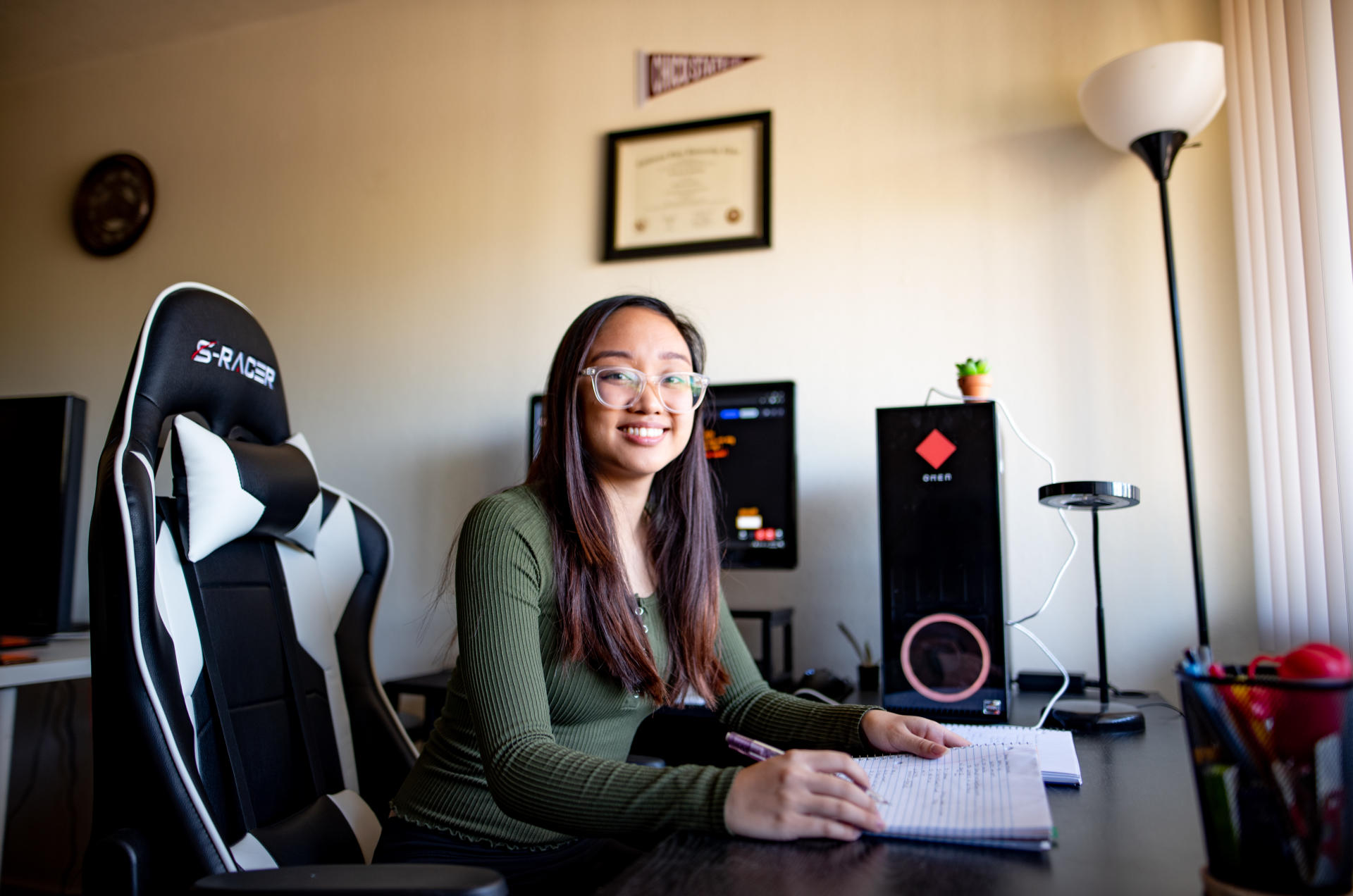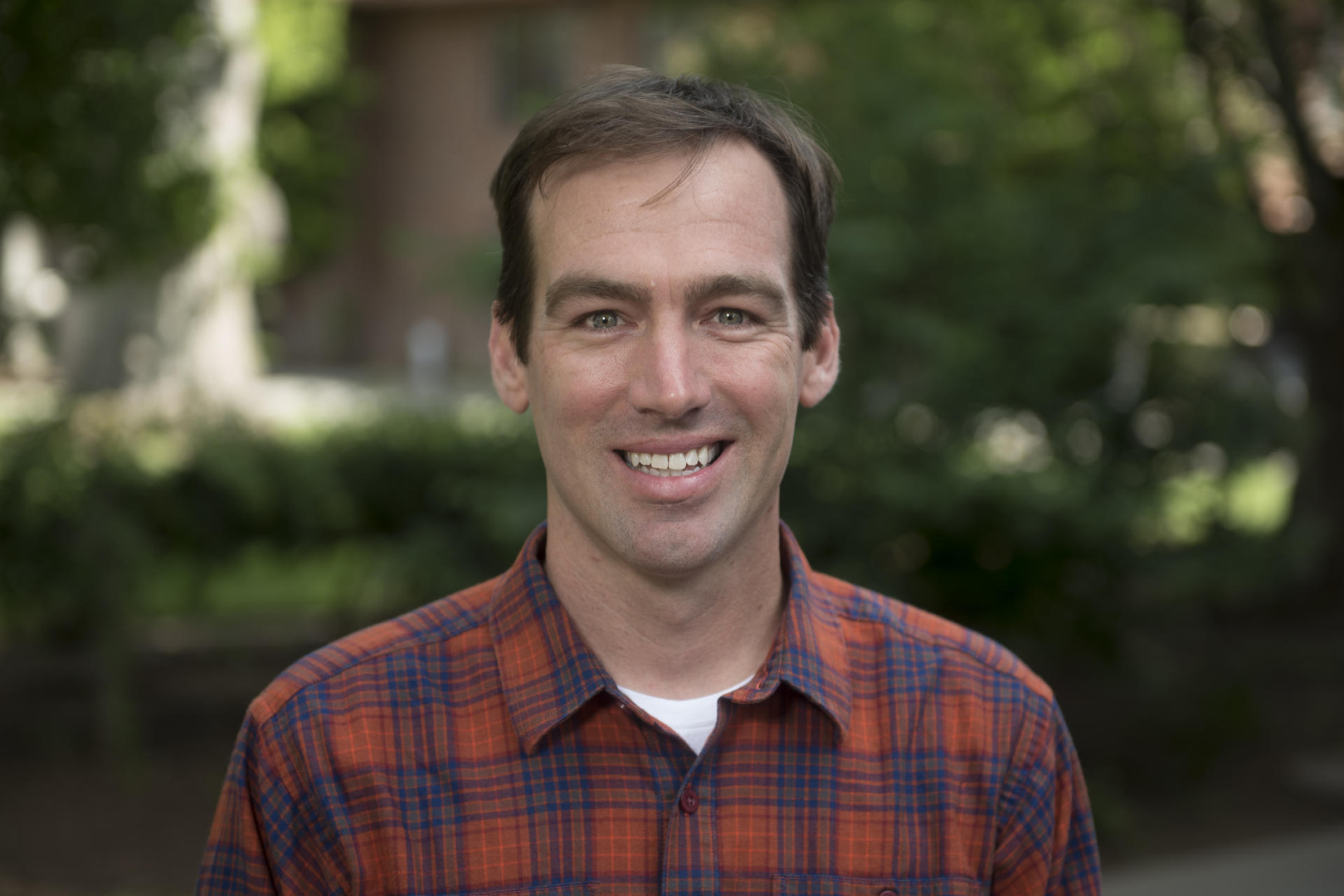CAVE Adopts Virtual Program to Maintain Legacy Tutoring Services

Keith Crawford faced a vexing dilemma—and a five-decade legacy hung in the balance.
As program director for Community Action Volunteers in Education (CAVE), Crawford helps oversee the organization’s in-person student tutoring program—its flagship and longest-running volunteer opportunity. So how would it continue to operate during the fall 2020 semester amid virtual learning forced by the COVID-19 pandemic?
CAVE’s face-to-face tutoring program, which has paired Chico State student tutors with K–12 students every semester for more than 50 years, was abruptly shifted online in March due to the global pandemic. After CAVE Program Coordinator Cathryn Carkhuff shuffled tutoring sessions to Zoom for the remainder of the spring, by summer, she and Crawford were still unsure how effectively that quick-fix would scale out for dozens of volunteers and thousands of virtual tutoring hours for the fall.
So, when Crawford read an introductory email from a company that at the time was called Tutorfly (today it is called GoSchoolBox), he was intrigued.
“What we didn’t really have was the infrastructure to schedule and connect for the tutoring,” Crawford said. “It almost sounded too good to be true.”
GoSchoolBox was originally founded as a tutoring marketplace in 2017 in the University of California, Los Angeles Anderson Accelerator Program and the Startup UCLA Accelerator Program, and found its footing as the COVID-19 pandemic tightened its grip and began forcing schools to virtual delivery in March. Providing private tutoring platforms for nonprofits, teachers, schools, and school districts, the company sought to expand its services to colleges and universities—and hand-selected Chico State to beta-test its product for free.
Thanks to GoSchoolBox, CAVE was able to provide a full slate of fall tutoring: Thirty-six tutors—all Chico State student volunteers—helped 43 local school kids, logging more than 1,100 hours of work.
Social work major Daisy Cedillo, a group leader for CAVE, said that while the pivot to virtual tutoring represented a sizeable shift, she also enjoyed the smaller group of student volunteers and felt she was able to get to know her fellow tutors on a deeper level.
“My leadership grew more, virtually rather than in person, which is kind of weird to say,” she added. “My communication also improved, and I feel like overall it was a good experience.”
Cedillo plans to hold the same position with CAVE—her fifth overall semester with the organization—during the spring, her final semester before graduating in May. She and her peers were able to overcome the initial challenges using a virtual platform, which should make the spring experience even better.

“Sometimes the parents did not know much about technology,” said the fifth-year student. “And at the beginning, it was a little difficult trying to teach the volunteers and the tutees how the system works.”
As with any new technology or learning platform, there was a learning curve to adopting GoSchoolBox. But from navigating various accessibility issues to communicating with families to working with Chromebooks, “GoSchoolBox was able to meet those challenges,” Carkhuff said.
GoSchoolBox Co-founder and CEO Parsa Rezvani said CAVE’s well-established history of tutoring within the community aligned wonderfully with the Los Altos-based company’s mission to empower student access.
“CAVE’s volunteers work one-on-one with students not just as tutors, but also as mentors that are building the foundation for the students to continue to grow as they move through their schooling,” Rezvani said. “We love that CAVE’s tutoring program has such a strong relationship with Chico Unified School District and its K–12 community.”
CAVE’s storied history of tutoring children in Chico-area schools dates back to 1966 when a tutorial pilot project was launched, pairing 20 Chico State students with children in the local community. A collaboration with the University’s School of Education began soon after, connecting CAVE—which became part of Associated Students since 1969—and its work to the credential portion of one of Chico State’s oldest degree programs.
When an email was sent to families of potential tutees to set up fall tutoring, Carkhuff said every spot filled up in just three hours before the application was closed—she used this as a valuable learning experience.
“We released the application without fully realizing how quickly the spaces would fill up,” Carkhuff said. “I should have prioritized our existing families,” adding that by late in the fall 2020 semester, 22 families remained on the waitlist.
The learning was not confined to CAVE, as GoSchoolBox similarly gleaned knowledge from Chico State.
“GoSchoolBox has really learned through us, as well, because we have this beautiful CAVE model where our students are really running the show,” Carkhuff said. “That’s how they want it, and that’s how we want it.”
As virtual learning is expected to continue during the spring 2021 semester, CAVE will likewise continue to utilize GoSchoolBox’s platform. Crawford is thankful the University administration approved of and supported the move to trying something new in the face of unprecedented challenges on campus and within the community.
“I think it’s a cool collaboration of technology, community, and disaster all coming together,” he said. “This is one of those times when you look around and say, ‘this is our moment to do something, this is what CAVE is here for—so let’s do it.’”


